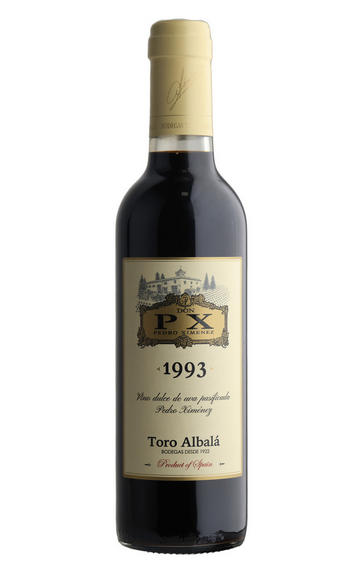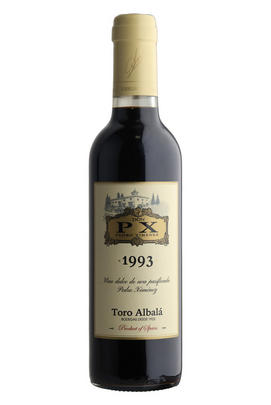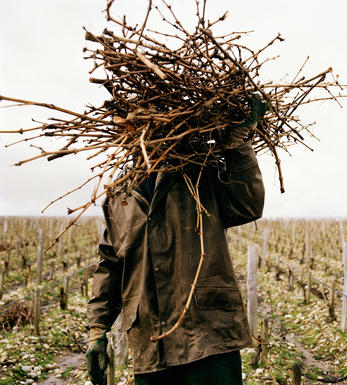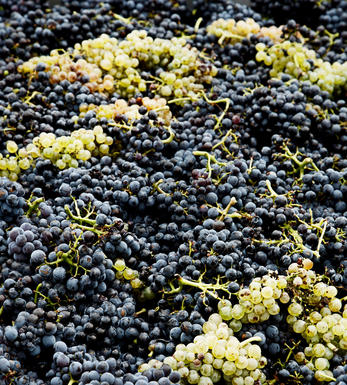
1993 Toro Albalá, Don PX, Montilla-Moriles, Spain

About this WINE

Bodegas Toro Albala
Toro Albalá from the eastern Spain appellation of Montilla-Moriles keeps releasing small lots of very old vintage-dated sweet Pedro Ximénez as well as characterful dry, old, vintage-dated Amontillados of mindboggling quality. Toro Albalá is among the best producer of Pedro Ximenez in the world today with the finest vineyard holdings in Montilla and the oldest stocks. Toro Albalá was a pioneering Montilla producer to introduce bottled, dessert-styled Pedro Ximénez (in 1970) and remains the world's only specialist in 100% vintage Pedro Ximenez.

Montilla-Moriles
Montilla-Moriles is located in the southern province of Córdoba, Andalusia, Spain, and is renowned for its unique style of fortified wines, with a particular focus on wines made from the Pedro Ximénez grape variety. The region has a long winemaking history dating back to Roman times, and various cultures and civilizations have influenced its winemaking traditions over the centuries.
The flagship wines are made from Pedro Ximénez. The grapes are sun-dried after harvest, a process known as "asoleo" or "soleo," which concentrates the sugars and intensifies the flavors. The resulting wines are intensely sweet, with complex raisins, dried fruits, dates, caramel, and toffee aromas.
Like its neighboring Jerez (Sherry) region, Montilla-Moriles specializes in producing fortified wines. The sweet PX wines are fortified with grape spirit, which increases the alcohol content and helps preserve the wine's sweetness and richness.
Many wines in Montilla-Moriles are aged using the solera system, a fractional blending method where older wines are mixed with younger ones in stacked barrels. This process creates a consistent and complex wine style with various vintages blending.
The region benefits from a hot Mediterranean climate, with long, dry summers and mild winters. The vineyards are often planted on chalky soils, known as albarizas, which help retain moisture and provide the necessary nutrients for the vines.
While PX is the dominant grape variety in Montilla-Moriles, the region also produces wines from other local grape varieties like Pedro Ximénez Fino and Montepila. These wines offer a different expression of the region's terroir and winemaking techniques.

Pedro Ximénez
Pedro Ximénez, often abbreviated as PX, is a white grape variety primarily grown in southern Spain, particularly in Andalusia and Montilla-Moriles. It is one of the most important grape varieties for producing sweet, fortified wines known for their intense sweetness and concentrated flavours.
The grapes are highly prized for their ability to produce sweet wines with exceptionally high sugar content. They are typically sun-dried after harvest, a process known as "asoleo" or "soleo," which concentrates the sugars and intensifies the flavours. Afterwards, they are pressed to extract a thick, sweet juice fermented and later fortified with grape spirit to create the famous Pedro Ximénez sweet wines.
The wines are renowned for their unique flavour profile, rich notes of raisins, dried figs, dates, caramel, toffee, and a distinct syrupy texture. They often display a dark mahogany colour and possess an incredible sweetness that makes them ideal as dessert wines or for pairing with chocolates and other sweet treats.
PX wines are often aged using the solera system, a fractional blending method that involves mixing older and younger wines to achieve consistent quality over time. Some of the wines are aged for decades, and their complexity and depth continue to evolve.


Buying options
Add to wishlist
Description
If you’re unfortunate enough (like myself) to be born in 1993, you’ll no doubt be aware that finding a quality wine from your year of birth is no easy task. Fortunately, our friends at Toro Albala have bottled liquid gold with the 1993 Don Pedro Ximenez. The nose is immense, with layer upon layer of complexity; you’re arrayed with a waft of dates, figs, sun-soaked raisins, mocha, golden mango, cinnamon, vanilla and baked plums. This is continued on the palate; be warned that this is not a wine for the faint-hearted, as the sugar content comes in at approximately 393g/litre, so make sure you have your dentist on speed dial!
This is still a very balanced wine, though, and the alcohol at 17% combined with well-structured acidity both help to rein in the sweetness. It’s perfect to drink now, but this will last many decades. Additionally, if you don’t finish the bottle, this wine will easily be kept for several months once opened.
Drink 2022 - 2050+
Sebastian Balcombe, Quality and Authentication Specialist, Berry Bros. & Rudd
wine at a glance
Delivery and quality guarantee